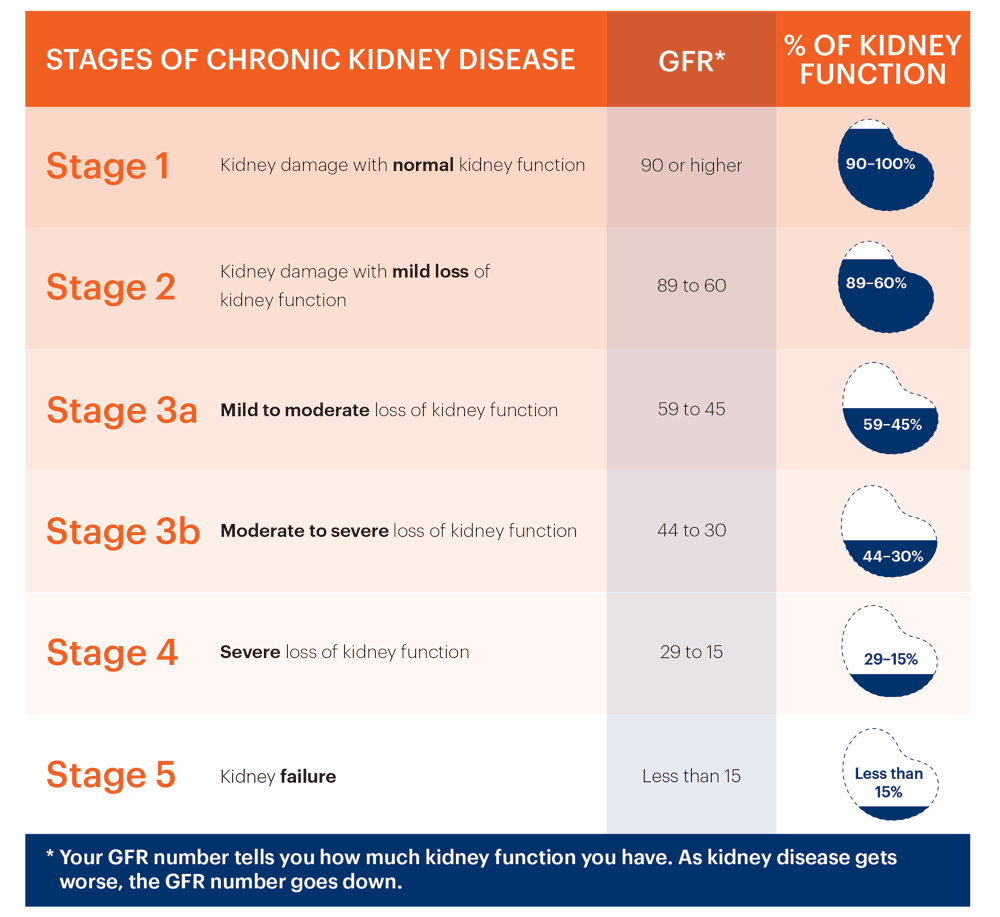See other Health Articles
Title: Video: Chronic Kidney Disease: Reverse Stage 5 KIDNEY FAILURE
Source:
[None]
URL Source: https://www.youtube.com/watch?v=_e_ga9FGTY8
Published: Dec 6, 2020
Author: Horse
Post Date: 2020-12-06 20:24:20 by Horse
Keywords: None
Views: 1124
Comments: 5
Estimated Glomerular Filtration Rate (eGFR) Your doctor can calculate it from the results of your blood creatinine test, your age, body size and gender. Your GFR tells your doctor your stage of kidney disease and helps the doctor plan your treatment. If your GFR number is low, your kidneys are not working as well as they should. The earlier kidney disease is detected, the better the chance of slowing or stopping its progression. A eGFR below 60 for three months or more or a eGFR above 60 with kidney damage (marked by high levels of albumin in your urine) indicates chronic kidney disease. Your doctor will want to investigate the cause of your kidney disease and continue to check your kidney function to help plan your treatment. Typically, a simple urine test will also be done to check for blood or albumin (a type of protein) in the urine. When you have albumin in your urine it is called albuminuria. Blood or protein in the urine can be an early sign of kidney disease. People with a high amount of albumin in their urine are at an increased risk of having chronic kidney disease progress to kidney failure. (See chart below) Poster Comment: 8 steps. 1) Find a great doctor. 2) Get control of diabetes. 44% of all new cases of CFD have diabetes. Lower BP to at least 130/80. 3) Monitor your blood work. 4) Modify your diet. Protein, Sodium, Potassium, and Phosphorous. Animal protein is harder to digest. 5) Be aware of available alternative supplements. 6)Walking 5 miles a day is his goal. No weight lifting. Too much stress. 7) Lose weight. 8) Reduce stress. 
Post Comment Private Reply Ignore Thread
Top • Page Up • Full Thread • Page Down • Bottom/Latest
Begin Trace Mode for Comment # 1.
#1. To: All (#0)
#2. To: Horse (#1)
Dr. Axe has some great products, but I cannot afford to purchase them now. I am going to stick with my Carotec supplements since they are among the best on the market. ;)
Thanks.
Top • Page Up • Full Thread • Page Down • Bottom/Latest
Replies to Comment # 1.
#3. To: Horse (#1)
End Trace Mode for Comment # 1.